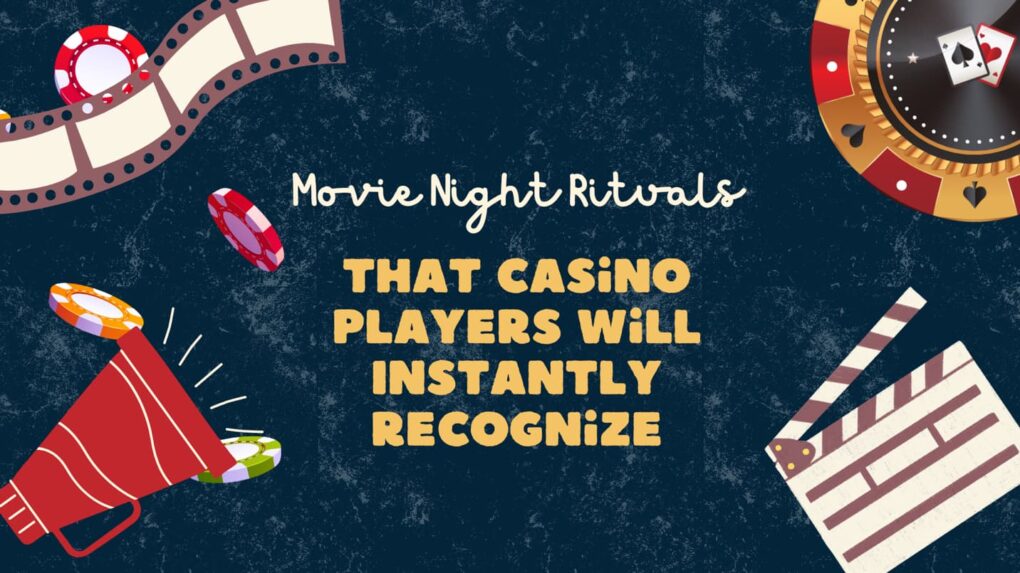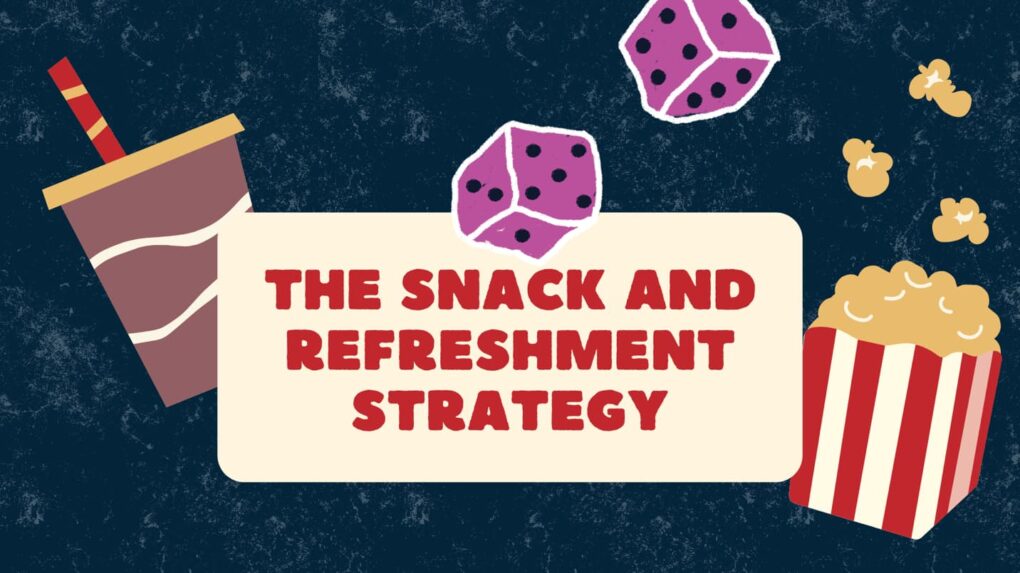
Movie Night Rituals That Casino Players Will Instantly Recognize
There’s something special about settling in for movie night or a casino session. Both activities involve careful preparation, personal rituals, and that distinctive sense of anticipation before the main event begins. Whether you’re queuing up your favorite film or taking your seat at a gaming table, the behavioral patterns are surprisingly similar.
These two forms of entertainment might seem worlds apart at first glance. However, dig a little deeper and you’ll discover that movie enthusiasts and casino players share remarkably parallel approaches to their chosen pastimes.

The Pre-Game Preparation Ritual
Setting the Atmosphere
Movie watchers know the drill: dim the lights, adjust the temperature, arrange the cushions just right. The environment needs to feel perfect before pressing play. Casino players follow a strikingly similar pattern when they arrive at their gaming destination.
Finding the right seat matters tremendously in both scenarios. Movie fans debate optimal viewing distance and angle, while casino players have their lucky machines or preferred table positions. Comfort dictates the quality of the entire experience.
The sensory environment plays a crucial role too. Movie watchers eliminate distractions and create their bubble of immersion. Casino players do the same, blocking out surrounding noise to focus on their game.
Budget Planning
Smart entertainment requires financial boundaries. Before movie night begins, there’s a mental calculation: streaming service costs, potential rentals, snack budget, and maybe premium format upgrades. Nobody wants buyer’s remorse halfway through.
Casino players understand this mindset intimately. Setting a session bankroll before playing is fundamental to responsible gaming. The amount varies by person, but the principle remains constant.
Both groups share the same goal: maximize entertainment value without financial stress. Pre-planning prevents impulsive decisions that might dampen the fun later.
The Selection Process
Research and Decision-Making
Choosing what to watch can take longer than the movie itself. Reviews get scrutinized, trailers watched multiple times, ratings compared across platforms. The stakes feel high because time is valuable.
Casino players conduct similar research before committing to a game. They check return-to-player percentages, read strategy guides, and watch gameplay videos. Information gathering feels essential to making the right choice.
Analysis paralysis strikes both groups equally. Sometimes the planning becomes so elaborate that it delays the actual entertainment.
Going with Favorites vs. Trying Something New
The eternal dilemma: comfort or adventure? Movie nights often involve this debate:
- Rewatching a beloved classic that never disappoints
- Exploring a new release with unknown quality
- Revisiting a franchise with familiar characters and storylines
Casino players face identical decisions. Returning to a trusted slot game offers predictability and comfort. Trying a new game brings excitement but carries risk. The psychological tension mirrors the movie selection process perfectly.
Risk tolerance varies by mood and circumstance. After a stressful week, both movie watchers and casino players might gravitate toward familiar favorites. Feeling adventurous? That’s when exploration happens.
The Superstitions and Lucky Charms
Personal Rituals
Movie night regulars develop their routines. Lucky pajamas, specific blankets, sitting in the same spot every time—these rituals provide psychological comfort. There’s no logical reason, but it feels wrong to break the pattern.
Casino players recognize this behavior instantly. Wearing certain clothing, touching the screen in specific ways, or following particular betting sequences all fall into this category. Logic doesn’t govern these choices; intuition does.
These rituals serve a deeper purpose beyond superstition. They create a sense of control in situations where outcomes are largely predetermined.
Timing Beliefs
When you watch matters, according to some movie fans. Friday nights feel different from Tuesday afternoons. New releases on opening night carry special energy that disappears a week later.
Casino players hold similar timing beliefs about “hot” and “cold” machines. Peak hours versus quiet periods supposedly affect outcomes. Morning sessions feel different from late-night gaming.
Both groups understand intellectually that timing probably doesn’t matter. Yet the beliefs persist because pattern-seeking is deeply human.
The Snack and Refreshment Strategy

Signature Treats
Certain snacks are inseparable from the movie experience:
- Popcorn with precise butter-to-salt ratios
- Candy that lasts the entire runtime
- Drinks sized to avoid mid-movie refills
Casino players have their refreshment preferences too. Complimentary drinks, endless coffee, or energy beverages to maintain focus—each player has their go-to order. The refreshments become part of the ritual, not mere sustenance.
Preparation matters here as well. Movie watchers prep snacks beforehand to avoid missing crucial scenes. Casino players position their drinks within easy reach to maintain game flow.
The Intermission Approach
Strategic breaks make or break the experience. Movie watchers pause for bathroom runs, snack refills, or simply to stretch. Timing these interruptions during slow scenes shows expertise.
Casino players take breaks between sessions to reset mentally. Stepping away after losses prevents emotional decisions. Even during winning streaks, brief intermissions help maintain perspective.
Pacing is everything. Both activities benefit from knowing when to pause and when to push forward.
The Emotional Rollercoaster
The Highs
Great movies deliver unforgettable moments: plot twists that reframe everything, emotional victories that bring tears, satisfying endings that justify the investment. That dopamine rush keeps people returning to theaters and streaming services.
Casino thrills parallel this perfectly. Winning streaks create euphoria, bonus rounds trigger excitement, and significant payouts deliver pure joy. The emotional intensity feels nearly identical to witnessing an amazing film climax.
These peak moments justify all the preparation and ritual. They’re what we remember and what we chase in future sessions.
The Lows
Not every movie delivers. Poor endings feel like betrayal, plot holes annoy, and wasted time stings. Walking away disappointed happens to every movie lover eventually.
Casino sessions bring similar disappointments. Cold streaks test patience, near-misses frustrate, and depleted bankrolls end the fun prematurely. Managing these low moments requires emotional maturity.
Both groups learn to accept that not every session will be magical. The disappointments make the victories sweeter.
The Social vs. Solo Dilemma
Group movie nights offer shared reactions and post-viewing discussions. Solo marathons provide complete control and undivided immersion. Each approach has distinct advantages.
Casino players understand this balance. Playing with friends adds social energy and shared excitement. Solo sessions allow complete focus and personal strategy.
The social dynamics fundamentally change the experience. Group settings encourage interaction but limit individual control. Solitary entertainment offers freedom but lacks shared memories.
Experienced enthusiasts in both camps alternate between approaches. Mood, circumstances, and goals determine which style suits the moment.
Conclusion
The parallels between movie night rituals and casino behaviors reveal something fundamental about human entertainment preferences. We seek patterns, create rituals, and build emotional connections with our chosen pastimes.
Whether dimming lights for a film or settling into a gaming session, we’re following deeply ingrained patterns of preparation, anticipation, and emotional engagement. These rituals transform simple activities into meaningful experiences.
Next time you prepare for movie night, notice your behaviors. Casino players would recognize every single one.





